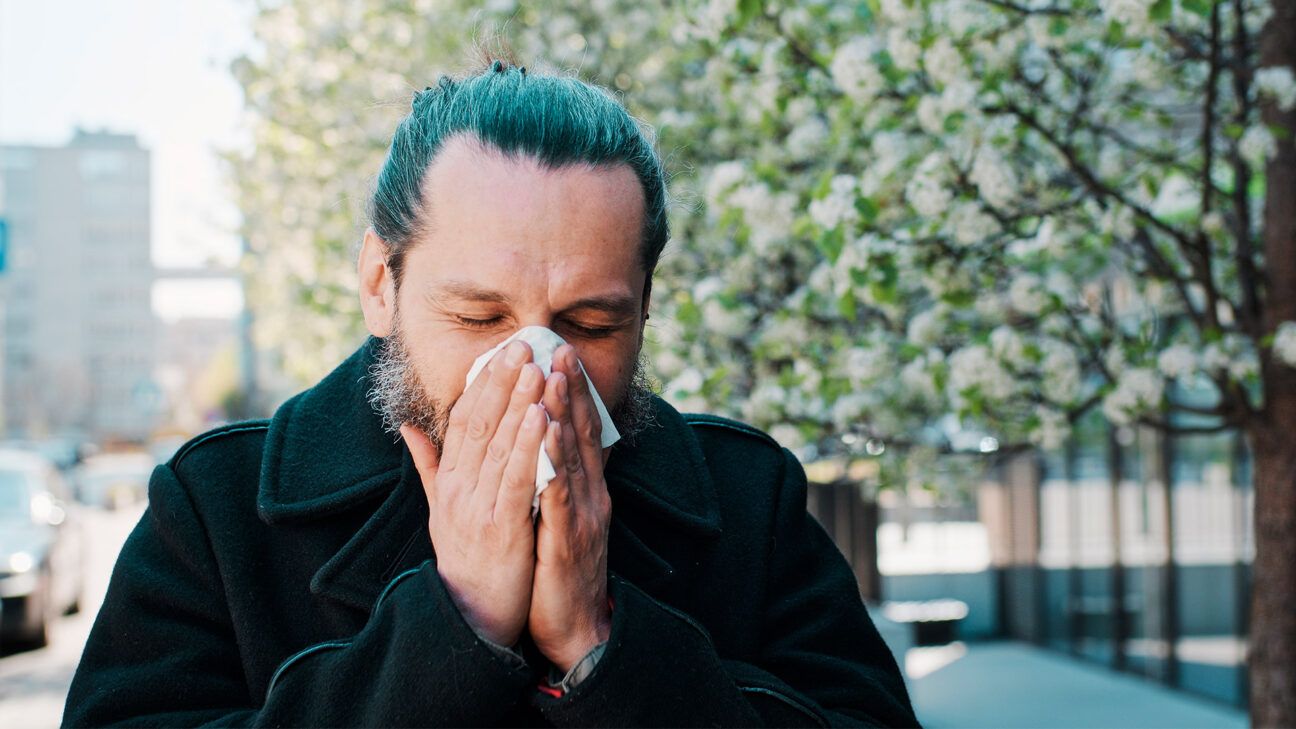
Spring Allergies Will Be More Intense and Last Longer in 2024, Experts Warn
Spring allergy seasons are becoming longer and more severe, with some North American regions experiencing up to three weeks of extended allergy periods. Climate change and warmer temperatures contribute to this trend by allowing plants longer pollination periods.

Man with blue hair sneezing
More than 25% of adults and 20% of children in the United States experience seasonal allergies, resulting in over $3 billion in annual medical expenses.
Here's how to protect yourself from seasonal allergies:
Indoor Protection:
- Keep windows and doors closed during allergy season
- Install HEPA filters in HVAC systems
- Regular cleaning to remove dust and allergens
- Wash hands frequently
- Clean or bathe pets regularly
Outdoor Prevention:
- Monitor local pollen forecasts
- Shower after outdoor activities
- Change and wash clothes after being outside
- Avoid outdoor activities during high pollen counts
Treatment Options:
- Over-the-counter medications:
- Antihistamines
- Decongestants
- Nasal and oral corticosteroids
- Prescription medications
- Allergen immunotherapy (allergy shots)
Common Seasonal Allergy Symptoms:
- Sneezing
- Runny or stuffy nose
- Watery, itchy eyes
- Itchy sinuses, throat, or ears
- Ear congestion
- Postnasal drainage
Seasonal allergies occur when the body reacts to airborne pollens from trees (spring), grasses (summer), and weeds (winter). Individual reactions vary, and you may be allergic to some pollens but not others.
Consult a healthcare provider if allergy symptoms significantly impact your daily life, as they can recommend appropriate treatment options and determine if immunotherapy might be beneficial.
Related Articles

Adult Onset Celiac: Understanding Late-Life Gluten Intolerance

